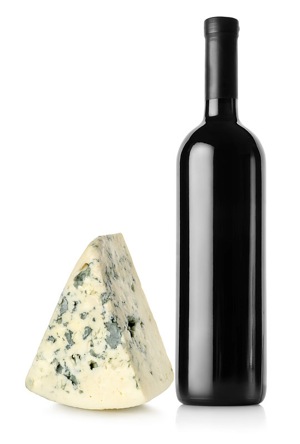
Are you eating a good diet and finding certain healthy foods, such as sauerkraut, are causing hives, swelling of the face or throat, a headache, nasal congestion, skin problems, a racing heart, anxiety, watery red eyes, heartburn, or irritability? If so the problem may not be allergies but instead a histamine intolerance. Histamines are found in many common foods, especially those that have been aged or fermented, such as aged cheese, red wine, and sauerkraut. Reacting to sauerkraut and fermented foods? Could be a histamine intolerance
Histamine is a compound produced by the body when you have an immune reaction in order to increase blood flow to the affected area. It also plays many other important roles in the body. Most people are familiar with histamines in response to hay fever, which many people dampen by taking antihistamines.
How is histamine intolerance different from a food allergy
Histamine intolerance is different from an allergy in that the response builds up over time—the more foods with histamine you consume, the more you react. This is what makes it difficult to pinpoint. It's common for people with histamine intolerance to screen for food allergies and have the results come back negative. They’re not allergic to the high-histamine foods. Instead, they react to the elevated histamine levels they experience after eating too many of them.
In the case of a food allergy, the immune reaction happens soon after consuming the food. With an intolerance, however, the reaction does not necessarily happen immediately after. This is because histamine levels in the blood need to reach a certain level for reactions to take place.
What causes histamine intolerance?
A histamine intolerance is caused by defect in the breakdown process of histamine, particularly a deficiency of the diamine oxidase (DAO) enzyme. Normally, when histamine levels rise too high DAO helps breakdown histamine. When this system falters histamine levels climb too high and a person experiences allergy-like symptoms.
Why do people get histamine intolerance?
Many believe an imbalance of bacteria in the gut play a role in histamine intolerance. We all have both beneficial and harmful bacteria in our guts, although ideally the good outnumber the bad. However, modern diets, stressful lifestyles, and the use of antibiotics can tip these bacteria out of balance so that the bad outnumber the good.
When harmful bacteria rule the gut, food doesn't get thoroughly digested and inflammation runs rampant, scenarios that create a build-up of histamine in the intestines. This leads to higher overall levels of histamine in the body so that eating histamine-rich foods could be the tipping point that causes symptoms. This is confounding for people who eat sauerkraut and other fermented vegetables to improve gut bacteria. Fortunately, there are other ways to help banish the bad bacteria and support the good, such as with probiotics, to address histamine intolerance. Ask my office for advice on how to balance your gut bacteria.
Foods high in histamines
While you are working on repairing your gut and restoring balance to your gut bacteria, it will be helpful to avoid foods high in histamines. Fermented foods such as sauerkraut are the biggest culprits (although anaerobically fermented foods may be fine).
Here is a list of foods to avoid on a histamine restricted diet:
- Fish and shellfish, unless freshly caught
- Eggs
- Processed, smoked, fermented meats
- Leftover meats (bacteria act on leftovers, producing histamines)
- All fermented milk products, including all cheeses, yogurt, buttermilk, and kefir
- Some fruits: Citrus, strawberries, apricots, cherries, grapes, raspberries, pineapple, cranberries, prunes, loganberries, dates, raisins, currants
- Some vegetables: Tomatoes and tomato products, spinach, red beans, eggplant, olives, pumpkin, avocado, pickles, relishes, and other foods containing vinegar
- Food additives: Tartrazine, artificial colors, preservatives, especially benzoates and sulfites (check your medications and supplements)
- Seasonings: Cinnamon, cloves, vinegar, chili powder, anise, curry powder, nutmeg
- Miscellaneous: Fermented soy (miso, soy sauce), fermented foods, tea, chocolate, cocoa, cola drinks, alcoholic beverages, and de-alcoholized beer and wine.



Latest from the Blog
The Death of Red Dye #3
January 15, 2025What Is Red Dye No. 3? Red Dye No. 3, or Erythrosine, is a synthetic food color derived from coal tar. It was first approved by the FDA in the 1950s and quickly became one of the most popular artificial colors in food and cosmetics. Red Dye No. 3 was used in everything from candies, […] Read more
Latest from the Blog
Do You Know What Is In Your Protein Powder?
What’s Really in Your Protein Powder? Understanding the Risks Protein powders are a staple in many health-conscious diets, from athletes seeking muscle recovery to those simply aiming to boost their daily protein intake. With a wide variety of options available, choosing the right one can feel overwhelming. However, recent findings have raised concerns about what’s […] Read more